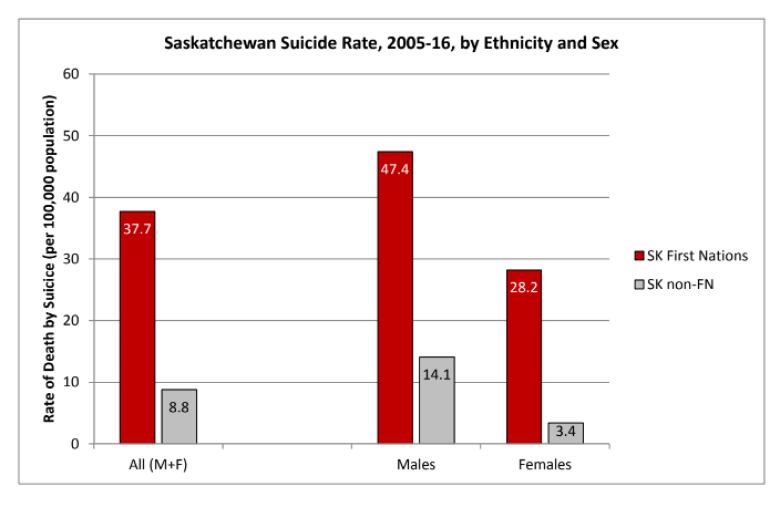FSIN asking chiefs, health leaders for input on Sask. suicide prevention strategy
Leaders have until November to provide feedback

The Saskatchewan Federation of Sovereign Indigenous Nations (FSIN)is asking Indigenous leaders and senior health workers for their feedback on its research into a suicide prevention strategy.
Recently, the FSINreleased a discussion paper created to inform a strategy, which it sayswill be completeby May 2018.
The paper outlines alarming statistics on First Nationssuicide rates in Saskatchewan, which it says are 4.3 times higher than the rate for non-First Nations people. The rate for First Nations girls aged 10 to 19 is 26 times higher, it says.
The FSIN said it has sent the paper to chiefs, health directors and managers of every First Nation in the province.
It has asked them to provide input on what should be included in the strategy, their thoughts on the information in the paperand what they feel would reduce the suicide rate in their communities.

FSIN Vice-Chief Heather Bear said there is nobody better equipped to inform the strategy than the chiefs.
"Ihave faith inthe chiefs and assemblies, they are the experts, they're on the ground, they deal with the issues," she said.
"They're not [just] leaders and government, they're the first responders when things happen."
Bear said the strategy would have a strong focus on youth and input from Saskatchewan representatives of the FSIN youth assembly.
She said she is "cautiously optimistic" the government will invest in the recommendations of the strategy when it is complete.
"The ultimate tragedy is suicide and there's just far too many problems in this area to just sit back and wait for a government tosay 'come on let's do something'," said Bear.
The chiefs and other leaders have until Nov. 15 to provide input on the discussion paper.
It is available online at the FSIN website.












_(720p).jpg)


 OFFICIAL HD MUSIC VIDEO.jpg)
.jpg)



























































































